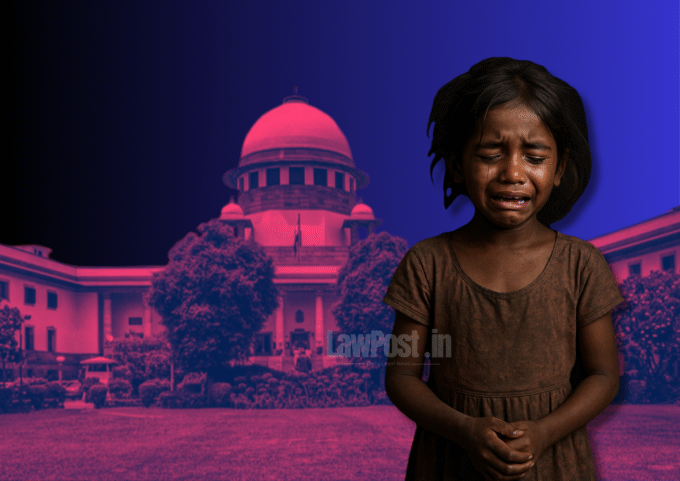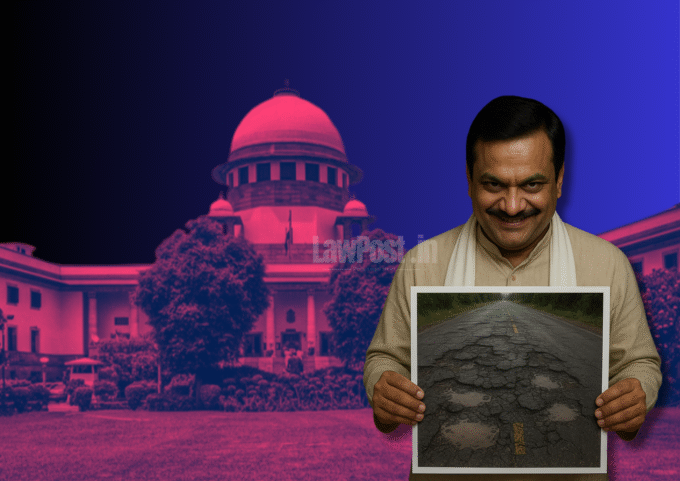In a powerful judgment marking his final days in office, Chief Justice of India DY Chandrachud issued a scathing critique of the increasingly prevalent practice of “bulldozer justice.” This controversial approach involves State authorities resorting to demolishing homes of individuals accused of crimes as a punitive measure. The Supreme Court’s judgment emphasizes that such acts violate the rule of law, striking a severe blow to fundamental rights guaranteed under the Indian Constitution. This decision, delivered by a bench comprising CJI Chandrachud, Justice JB Pardiwala, and Justice Manoj Misra, provides clarity and protections regarding property rights under Article 300A and sends a resounding message to uphold due process before carrying out any property demolitions.
The case, In Re Manoj Tibrewal Akash, revolves around an incident from 2019 in Maharajganj, Uttar Pradesh, where the home of journalist Manoj Tibrewal Aakash was demolished by local authorities without following the requisite legal procedures. The Supreme Court, finding that the State’s actions were arbitrary, ordered the Uttar Pradesh government to pay an interim compensation of ₹25 lakh to the petitioner. Furthermore, the Court directed the State to initiate disciplinary action against the officials responsible for this unlawful demolition.
A Blow Against Arbitrary Property Demolitions
In his judgment, CJI Chandrachud firmly denounced “bulldozer justice,” categorically stating that it is “unacceptable under the rule of law.” He stressed that if such acts were allowed, the constitutional protections enshrined in Article 300A—concerning the right to property—would be rendered meaningless. He observed that demolition without due process threatens the security and dignity of citizens, turning the rule of law into a tool of coercion and repression rather than justice.
“Justice through bulldozers is unknown to any civilized system of jurisprudence,” Chandrachud remarked. He warned that enabling such unchecked and high-handed state behavior opens the door for selective reprisals. This selective demolition risks becoming a tool for silencing dissent and targeting specific individuals, eroding the fundamental security a person has in their home and property. Chandrachud also noted the dangers of using demolition as a reprisal, stating that citizens’ voices cannot be “throttled by a threat of destroying their properties.”
Case Background and Judicial Findings
The genesis of this case lies in a letter complaint filed in 2020 by Manoj Tibrewal Aakash, whose home in Maharajganj was abruptly demolished the year prior. The State authorities claimed that the property was an illegal encroachment; however, the evidence revealed a stark contrast between the claim and the action taken. The authorities only conducted a Munadi (public announcement by drumbeat) prior to the demolition. No formal notice or details about the alleged encroachment were provided, nor was there any explanation of the demolition’s scope. Even the extent of the claimed encroachment was minor, covering only 3.70 square meters—a figure that did not justify the wholesale destruction of Aakash’s home.
The petitioner alleged that the demolition was in retaliation for a news article he had written, which contained allegations of wrongdoing in the construction of a local road. Although the Supreme Court did not dwell on this reprisal argument, it emphasized that such arbitrary actions by State authorities, regardless of motivation, cannot stand in a country governed by the rule of law.
The Court’s Observations and Wider Implications
The judgment by CJI Chandrachud emphasized several steps that must be followed by State authorities before proceeding with demolitions. For encroachments associated with road widening projects, for instance, authorities are mandated to issue written notices, clarify the extent of demolition, and disclose the criteria used for determining encroachment. This directive aims to ensure that demolitions do not occur without providing occupiers the opportunity to respond or rectify the alleged encroachment.
Additionally, the judgment highlighted that the primary function of law enforcement is to uphold rights and ensure justice, not to bypass established legal frameworks to achieve punitive ends. By ordering interim compensation and disciplinary action, the Court demonstrated its commitment to upholding accountability among State officials who misuse their powers.
Broader Judicial Trends Against Bulldozer Justice
The Chandrachud bench’s ruling is not an isolated judicial stance. In September 2024, another Supreme Court bench headed by Justices BR Gavai and KV Viswanathan halted all demolitions across India, barring exceptions granted by the Supreme Court. The Court underscored that alleged criminal involvement cannot justify demolishing a legally constructed property. Another bench led by Justices Hrishikesh Roy, Sudhanshu Dhulia, and SVN Bhatti also reinforced this perspective, granting a status quo order against demolitions threatened due to alleged crimes. These orders underline the judiciary’s unified opposition to bulldozer justice and its impact on citizens’ rights.
Conclusion: Safeguarding Property Rights and Due Process
The Supreme Court’s recent judgment in In Re Manoj Tibrewal Akash serves as a landmark decision reinforcing constitutional safeguards for property rights and procedural due process. By condemning bulldozer justice as “unknown to any civilized system,” CJI Chandrachud has set a definitive precedent against arbitrary property demolitions in India. This judgment is a significant affirmation of the right to property as enshrined in Article 300A, emphasizing that no State authority can bypass due process without consequence. As India moves forward, this ruling stands as a testament to the judiciary’s role in upholding justice and protecting the rights of its citizens against high-handed state actions.







